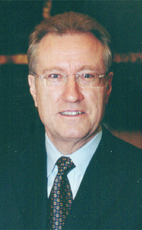Mr. Speaker, I am pleased to table today the report on international business development. The document, entitled "Achievements of the International Business Development Program", responds to recommendations put forward in the November 1996 auditor general's report on Canada's export promotion activities.
The auditor general recommended that the Department of Foreign Affairs and International Trade and Industry Canada establish
mechanisms to measure the effectiveness of our international business development activities.
As recommended, we are establishing a performance measurement framework to determine the effectiveness of existing government programs and services and to help plan for the future.
The international business development report I am tabling today will serve as an annual report card updating parliamentarians on the results of our international business development activities.
We must ensure that the services we provide achieve their intended objectives at the least possible cost.
[English]
Next year's report will have much more detail than this initial endeavour and will discuss the preliminary results of our performance measurement system, including feedback from clients on our trade commissioner service, a review of the impact of the department's exports, investment and technology development activities. It will have baseline indicators that have been established to measure Canada's year over year success in terms of international markets and our promotion in those markets.
The government's international business development activities work hand in hand with a rigorous bilateral and multilateral trade policy agenda and clearly establish market access priorities to ensure that Canadian businesses have competitive access to world markets.
We are improving the delivery of services because international trade is an important part of the government's job strategy. The more companies we introduce to trade, the more jobs are created in Canada. To that end we have set a tangible goal of doubling the number of active exporters by the year 2000.
With exports accounting for nearly 40 per cent of our gross domestic product, international trade has become the engine that drives the Canadian economy.
For ever $1 billion in increased trade, we create or sustain 11,000 jobs in Canada, jobs for every community in the country. Promoting Canada's products and services is, however, only one part of the job.
We also must sell Canada as an outstanding place to invest. Foreign direct investment in Canada has a dramatic impact on job creation. Today three Canadian jobs out of ten, both direct and indirect, more than 50 per cent of our total exports, and 75 per cent of our manufacturing exports are directly attributable to foreign direct investment in Canada.
Studies suggest that attracting a billion dollars of foreign direct investment into Canada results in up to 45,000 jobs over a five year period. That is why we have developed a specific agency, a specific program, to help bring in more of those investment dollars.
I cannot talk about international business development without referring to the success of the Team Canada trade missions led by the Prime Minister, together with the premiers, which have helped the private sector to bring home more than 550 business deals with more than $22.1 billion for Canadian companies and resulting in Canadian jobs.
Canada is meeting the challenge of globalization and members have only to look at our track record.
The 1996 trade statistics are proof that Canada is succeeding internationally. Canada's trade surplus reached a record level of $34 billion. That was $6 billion more than in 1995. That is success.
This success has been built on the strength of the Team Canada partnerships. We have forged solid alliances with our provincial, municipal and private sector colleagues. By working together in Team Canada, we have been able to deliver the programs and services that Canadian companies need to compete internationally.
Finally, it is a pleasure for me to announce today that the 1997-98 Canada's international business strategy is now available to the Canadian business community. International business development programs and initiatives help Canadian businesses become export ready by providing access to key financial services, market information in export programs.
The federal government and its Team Canada partners continue to forge ahead in their international business development endeavours. Working together we are confident that Canada will continue to prosper as we expand and diversify our markets abroad and as we attract foreign investment and technology flows into Canada.

